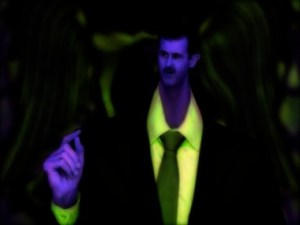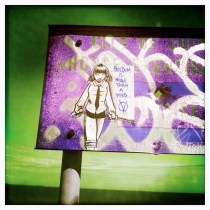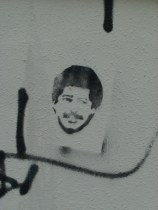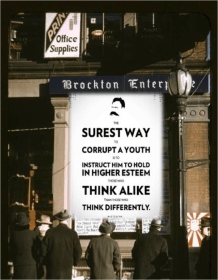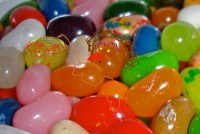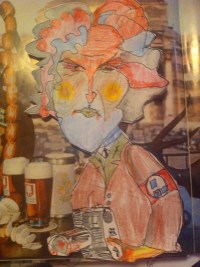Belatedly, at a sidebar meeting with Russian President Vladimir Putin at the Paris climate summit on Monday, President Barack Obama reportedly expressed regret for last week’s killing of a Russian pilot who was shot down by a Turkish air-to-air missile fired by a U.S.-supplied F-16 and the subsequent death of a Russian marine on a search-and-rescue mission, apparently killed by a U.S.-made TOW missile.
But Obama administration officials continued to take the side of Turkey, a NATO “ally” which claims implausibly that it was simply defending its air space and that the Russian pilot of the SU-24 warplane had ignored repeated warnings. According to accounts based on Turkish data, the SU-24 may have strayed over a slice of Turkish territory for 17 seconds. [See Consortiumnews.com’s “Facts Back Russia on Turkish Attack.”]
Immediately after the incident on Nov. 24, Obama offered a knee-jerk justification of Turkey’s provocative action which appears to have been a deliberate attack on a Russian warplane to deter continued bombing of Syrian jihadists, including the Islamic State and Al Qaeda’s Nusra Front. Turkey’s President Recep Tayyip Erdogan, an Islamist, has supported various jihadists as his tip of the spear in his goal to overthrow the secular regime of Syrian President Bashar al-Assad…
::: click here or above for piece in full + open source @ Common Dreams :::
Ray McGovern works with Tell the Word, the publishing arm of the ecumenical Church of the Saviour in Washington, DC. During his career as a CIA analyst, he prepared and briefed the President’s Daily Brief and chaired National Intelligence Estimates. He is a member of the Steering Group of Veteran Intelligence Professionals for Sanity (VIPS).
Category: P-UTIN
PATRICK COCKBURN
Russia in Syria
The military balance of power in Syria and Iraq is changing. The Russian air strikes that have been taking place since the end of September are strengthening and raising the morale of the Syrian army, which earlier in the year looked fought out and was on the retreat. With the support of Russian airpower, the army is now on the offensive in and around Aleppo, Syria’s second largest city, and is seeking to regain lost territory in Idlib province. Syrian commanders on the ground are reportedly relaying the co-ordinates of between 400 and 800 targets to the Russian air force every day.
excerpt…
“…Earlier this month, the British Broadcasting Corporation, which sees itself as still the best broadcaster in the world, gave a well-bred expression of fear. Peter Horrocks, who has just stepped down as head of the BBC World Service, said “we are being financially outgunned by Russia and the Chinese (broadcasters) … the role we need to play is an even handed one. We shouldn’t be pro one side or the other, we need to provide something people can trust.”
Horrocks was saying that people could trust the BBC; they couldn’t trust the Russians and the Chinese; but that the latter were now real competition.
The Russian broadcaster, Russian Today (RT) found that offensive. In a bad tempered exchange with CNN’s Christiane Amanpour, RT’s presenter Anissa Naouai (who is American) said that her channel’s job was “closing the holes” in mainstream Western channels’ coverage — holes of misrepresentation, unchecked assertion and bias. She admitted – indeed proclaimed – that the Kremlin funded the channel: but it’s reason for doing so is that President Vladimir Putin “wants … Russia to be respected, mutually respected on an equal playing base, and he wants dialogue to prevail.”
RT has denied that it gets more funding than the BBC, and in a feisty reply to the charge, the broadcaster said that money did not account for its growing popularity; that is “happening because audiences around the world, including in the UK, have become inundated with the same talking points from the mainstream media and are looking for something fresh.”
But money isn’t the point. The Russian and Chinese English-language channels – RT and CCTV News – are provided by state broadcasters of the world’s two leading authoritarian states. The news and analyses they give to their own populations cannot do other than conform closely to the policies and priorities of the rulers of these states…”
John Lloyd co-founded the Reuters Institute for the Study of Journalism at the University of Oxford, where he is Director of Journalism. Lloyd has written several books, including “What the Media Are Doing to Our Politics” (2004). He is also a contributing editor at FT and the founder of FT Magazine.
With ‘leaders’ (sic), puppets and stooges meeting for the G20 meeting in Brisbane this week, the role of coal in development and poverty alleviation is being relentlessly talked up, with Australian politicians from the Prime Minister down running coal industry PR lines.
However, while Tony Abbott insists that coal is the “foundation of prosperity”, a new report from The Australia Institute shows that while the industry talks a big game on fighting poverty, it doesn’t even use coal to help the energy poor in the developing world.
The report All talk, no action: the coal industry and energy poverty finds that on the few occasions coal companies have spent money to help the energy-poor, they ironically tended to use distributed, off-grid renewables or hydro power at best. At worst, G20 sponsor Peabody Coal literally did nothing to help the energy poor other than push a website and PR campaign designed to influence public policy and opinion.
The Bureau of Investigative Journalism, May 2012 report on Putin’s mega wealth:
Back in 2011, surrounded by press, Vladimir Putin emerged from the murky waters of the Black Sea clutching the discovered remnants of ancient buried treasures. The discovery later turned out to be nothing more than a PR stunt. He hadn’t found the artefacts after all. But the stunt had achieved its purpose. Putin was once again seen as the bare-chested, judo-master, tiger-pacifying, untouchable leader of Russia.
But it was another apparent PR stunt – the spontaneous gifting of a £5,500 watch to a peasant boy – which led some to question whether Putin did not have buried treasure of his own. How could a politician with a declared annual salary of around $140,000 (£88,000) afford to live a life seemingly full of luxury watches, as well as yachts and palaces?
The Bureau of Investigative Journalism decided to investigate and…
View original post 1,274 more words
Blogger Alexei Navalny defied Putin. Now he faces six years in prison. In an interview with SPIEGEL ONLINE, Russian human rights icon Lyudmila Alexeyeva explains why the Kremlin is trying to muzzle the opposition leader — and why it could backfire.
Alexei Navalny made his name as a blogger and anti-corruption activist before becoming the most prominent figure in the protest movement against Russian President Vladimir Putin. But now Navalny is 37 years old, and he is already facing the end of his political career. If a court in the provincial Russian town of Kirov finds him guilty this Thursday, he cannot, by Russian law, run for public office….click here for full story @ SPIEGEL..
Here at the interpretOr, we reported last year that the Putin regime is also accumulating massive wealth – guess this is easier to do if it’s death or the neo-gulags for commentators…
View original post 5 more words
A deleted social media post by a separatist militia leader has led to accusations that pro-Russian rebels in Ukraine are to blame for the Malaysia Airlines crash that has left at least 295 people dead.
Igor Girkin, who also goes by the nom de guerre Strelkov, is reported to have claimed that his forces shot down a plane in the Donbass region of eastern Ukraine at 5.50pm (GMT+4), shortly before reports emerged the passenger jet was missing.
“We have issued warnings not to fly in our airspace. We have video confirming. The bird fell on a waste heap. Residential areas were not hit. Civilians were not injured,” he is reported to have said.
As Ukraine teeters on a knife edge between self determination and further Russian incursion, the UN Security Council assembles for crisis talks…here @ the interpretOr, we’re having another look at perspectives from Reporters Without Borders and Amnesty International on the Putin regime… Reporters Without Borders...
…in the face of the Russian public’s calls for respect and democracy, the government has responded with repression. A spate of draconian laws has been adopted in record time. Legislation regulating human rights NGOs and unauthorized demonstrations was toughened, while defamation was reintroduced into the criminal code after being decriminalized in November 2011. In the name of “protecting minors,” a federal agency has been told to compile a blacklist of “pernicious” websites that can be blocked without reference to the courts and without any possibility of defence. And the Duma is not stopping there. Plans are under way to vastly extend the scope of what is regarded as “high treason” and “state secrets.” Tools for circumventing online censorshipare to be banned. And “offending the feelings of believers” is to be penalized drastically. The desire to control is as plain as ever. OFFICIAL VERSION “The media’s active and responsible attitude and a truly independent and courageous journalism are more than ever desired and indispensible for Russia.” (Address to the Union of Journalists, April 2013) REALITY Whether indispensible or not, independent journalism is a risky activity in Russia. No fewer than 29 journalists have been murdered in direct connection with their work since Putin became president. Physical attacks and murders occur with regularity and are encouraged by the impunity enjoyed by their perpetrators. After a particularly intense wave of violence from 2008 to 2010, Putin and Dmitry Medvedev both gave personal undertakings to combat impunity. With no effect. Mikhail Beketov, who suffered lasting injuries in a November 2008 attack, died in April 2013 without seeing his assailants brought to justice. The identity of those who ordered the murders of Anna Politkovskaya and Khadzhimurad Kamalov, and the attack on Oleg Kashin, is still unknown. Read in Russian / Читать по-русски
Amnesty International …
Vladimir Putin’s return as President, following widely criticized elections, led to a surge in popular protest and demands for greater civil and political freedoms, particularly around his inauguration in May. The result was increased restrictions. Protests were frequently banned and disrupted. New laws were adopted, often without public consultation and in the face of widespread criticism, which introduced harsh administrative and criminal penalties that could be used to target legitimate protest and political and civil society activities, and to restrict foreign funding for civic activism. The Russian Federation responded belligerently to international criticism of its human rights record. A law on travel and other sanctions on officials allegedly responsible for the death of lawyer Sergei Magnitsky in custody in 2009 was passed in the USA and proposed in several other countries. The Russian authorities retaliated with reciprocal sanctions and by banning the adoption of Russian children by US citizens and prohibiting Russian NGOs from receiving funding from the USA. Russia continued to enjoy economic growth, although this slowed with falling oil prices, the global economic downturn and the lack of structural reforms at home. Public protest decreased by the end of 2012, but so did public support for the political leadership, according to opinion polls…
Blogger Alexei Navalny defied Putin. Now he faces six years in prison. In an interview with SPIEGEL ONLINE, Russian human rights icon Lyudmila Alexeyeva explains why the Kremlin is trying to muzzle the opposition leader — and why it could backfire.
Alexei Navalny made his name as a blogger and anti-corruption activist before becoming the most prominent figure in the protest movement against Russian President Vladimir Putin. But now Navalny is 37 years old, and he is already facing the end of his political career. If a court in the provincial Russian town of Kirov finds him guilty this Thursday, he cannot, by Russian law, run for public office….click here for full story @ SPIEGEL..
Here at the interpretOr, we reported last year that the Putin regime is also accumulating massive wealth – guess this is easier to do if it’s death or the neo-gulags for commentators, journos, bloggers…
Putin bling @ $70,000,000,000
The remaining non-imprisoned members of Pussy Riot condemn Putin and his attack on feminism and whilst abseiling down a building.
This short was produced for MTV Video Music Awards but… pulled from the show over “concerns with corporate policy.” So, here we have corporate america capitulating to the dictates of the profit motive and the Mor(m)ons…Ed Creepbuhmlicka jnr. was unavailable for comment.
MTV: soft-power…gutless…twaddle….? MTV…Mendacious and Totally Vapid…
The Bureau of Investigative Journalism, May 2012 report on Putin’s mega wealth:
Back in 2011, surrounded by press, Vladimir Putin emerged from the murky waters of the Black Sea clutching the discovered remnants of ancient buried treasures. The discovery later turned out to be nothing more than a PR stunt. He hadn’t found the artefacts after all. But the stunt had achieved its purpose. Putin was once again seen as the bare-chested, judo-master, tiger-pacifying, untouchable leader of Russia.
But it was another apparent PR stunt – the spontaneous gifting of a £5,500 watch to a peasant boy – which led some to question whether Putin did not have buried treasure of his own. How could a politician with a declared annual salary of around $140,000 (£88,000) afford to live a life seemingly full of luxury watches, as well as yachts and palaces?
The Bureau of Investigative Journalism decided to investigate and has produced a documentary for Al Jazeera’s People & Power. We travelled from Moscow to St Petersburg looking into the origins and scale of Putin’s wealth.
Declared earnings
On March 6, Putin was once again elected president of Russia. He regained the role he had relinquished in 2008, when he had stepped down because of rules preventing more than two consecutive terms, becoming prime minister instead.
As part of his latest election bid, Putin was required to declare his worth. His declaration seems modest for a world leader.
Stanislav Belkovsky, a political analyst, claims Putin could be worth as much as $70bn, a figure that would make him the richest man in the world.
According to the Russian Central Electoral Commission, Putin has $179,612 in the bank and has earned around half a million dollars in the past four years. His wife Lyudmila has $261,541 in four bank accounts. Putin’s declared assets are also rather spartan. He has claimed to have a share in a public garage, apartments in Moscow and St Petersburg and a 1,500-square metre plot of land outside Moscow.
But there is increasing concern that Putin has not declared all of his worldly goods.
Watches
One of the reasons for such concern is that, despite his modest income, Putin has shown something of a flair for the finer things in life. He is rarely seen without a luxurious watch and has been photographed several times wearing expensive brands, including a £70,000 Patek Philippe Perpetual Calendar, and a £15,000 Breguet Marine.
Not that the Russian leader is uncharitable: he has also been spotted giving away £11,000 worth of Blancpain watches. The first was gifted to the shepherd boy and the second, rather more reluctantly, to a metal worker who brazenly asked the Russian leader for a keepsake. Both instances were captured by the media.
In total Putin has been photographed wearing around £160,000 of wrist wear. A remarkable feat for a man who earns, before tax, £80,000.
It is something that other journalists have been alert to. Luke Harding has reported for the Guardian newspaper on Putin’s wealth for years, and has been banned from Russia in the process. He said, ‘it is unlikely that [Putin] – or any of the presidential administration – would have items of this value without any kind of supplementary income.’
We asked the Kremlin about the watches. Were they his personal property or owned by the state? They declined to tell us.
But high-end watches are positively discreet compared to luxury yachts and palaces.
Luxury accomodation
As president, Putin will have access to the presidential yacht, Chakya. Bought under Medvedev’s rule, the luxury yacht came with a £26m price tag. It has six luxury cabins, wine cellar, jacuzzi, barbecue and other luxuries.
The yacht was bought with presidential funds. However, another extravagant purchase, which some have linked to Putin’s personal wealth, is a mansion overlooking the Black Sea.
The palace, sold recently for £350m, is rumoured to have been built as a holiday home for the Russian president-elect.
Leaked photographs of the Palace show richly decorated interiors, ornate grounds, gates topped by a two-headed eagle and a lift down to the beach.
Security around the palace is high, barbed wire and guard dogs kept our reporters at a distance. Putin denies any connection to the palace and current, official owner Alexander Ponomarenko says the palace is a ‘holiday home.’
However, local resident admit seeing Putin frequenting the area and when environmental activists broke into the compound in 2011 protesting the building’s construction on protected land, they were met by Federal Protection Service guards.
Sergei Kolesnikov, a Russian businessman and former associate of Putin, claims the palace was built for Putin through a web of transactions with its ownership being held in anonymous bearer shares.
The Bureau has also obtained building contract documents for work on the palace which bear the signature of Vladimir Kozhin, the head of the Presidential Administration Property Development.
Read more about the Black Sea Palace.
Hidden wealth?
But it is not just watches, yachts and palaces. There are others who believe that Putin’s declaration of modest wealth simply does not add up. Stanislav Belkovsky, a political analyst and critic of Putin, is one of the most outspoken. He claims Putin could be worth as much as $70bn, a figure that would make him the richest man in the world.
This extraordinary sum is based on claims that Putin owns shares in three major oil and gas companies: 4.5% of national gas giant Gazprom, 37% of oil supplier Surgutneftegas and a major shareholder of a company that cannot be named for legal reasons. That company strenuously denies any links to Putin.
‘The figure of $40bn emerged in 2007. That figure could now have changed, I believe at the level of $60-70bn,’ Belkovsky says.
His estimate is based on information gained from confidential sources around the corporations, Belkovsky claims. But he is reluctant to reveal more.
All three companies have opaque ownership structures, and it is impossible to identify the shareholdings claimed by Belkovsky.
Gas and oil producer Surgutneftegas is secretive – an attitude that has not always played in its favour. In 2009 the company bought a 21.2% stake in Hungarian company MOL. However, when Surgutneftegas came to register as a voting shareholder, it was refused. MOL said the company’s lack of transparency around its ownership structure did not comply with Hungarian law. Gazprom is the biggest gas extractor in the world; the Russian government controls it with a 50.002% stake. But while Gazprom is more transparent over share ownership, Belkovsky claims Putin’s share is hidden through ‘a non-transparent scheme of successive ownership of off-shore companies and funds’.
Gazprom and Surgutneftegas did not respond to the Bureau’s questions.
Despite repeating the claims several times and it being reported widely, Belkovsky has never faced legal action disputing them.
Investigating Putin
As Bureau reporters travelled across Russia we came across others that had tried to investigate Putin in the past.
Deep in the countryside, outside St Petersburg, we met with Marina Salyle.
In 1992 Salye investigated a deal made in the St Petersburgh City office deal which involved the export of $100m worth of raw materials in exchange for food. According to Salye Putin oversaw the deal but while the raw materials were shipped from the city, the promised food never arrived. Her accusation, made up until her recent death, was that Putin benefited from this incomplete deal.
The Kremlin argue that Putin never signed the paper authorising it, though Salye has papers that she claims do contain the President-elect’s authorising signature.
Back in St Petersburg, Lt. Col. Andrei Zykov, a former senior investigator at the Russian Interior Ministry, described his own work looking into Putin’s past.
In June 1999, when Putin was serving his first term as president, Zykov was put in charge of criminal case, number 144 128.
The case involved a construction company called Twentieth Trust, which officials suspected had been used to siphon money from St Petersburg’s city budget in the early 1990s. Zykov claims that Putin benefited from a Spanish villa from the deal.
The investigation was shut down on the grounds of ‘insufficient proof’ and according to Zykov he was fired a year and a half later.
We asked the Kremlin to respond to Mr Zykov’s claims. It has declined to do so.
Read more about Putin’s past. (and link back to the Bureau of Investigative Journalism)
In the early days of his first term as president, Putin had promised to rid Russia of its corrupt oligarchs.
However, as he now prepares to enter a third term as leader of Russia, it is the luxury lifestyle of a tsar that awaits him.
Situational and street arts are a challenge to the mainstream, ubiquitous semiotics related to buying things. In my home town of Bristol, the city council asked the people whether a painting by Banksy that had been defaced should be restored, and out of the public purse, 93% voted in favour. Give me a bandido hurling a bouquet over some botoxed narcissist trying to sell us rubbish.
Viona is the name of a situational street art movement, based in Russia and supported by Banksy. Their name translates as ‘war’ and they recently fired an award wining salvo in the form of a “65 meter penis” painted onto a drawbridge. Putin immediately springs to mind, but isn’t he a 1.65 meter penis?












